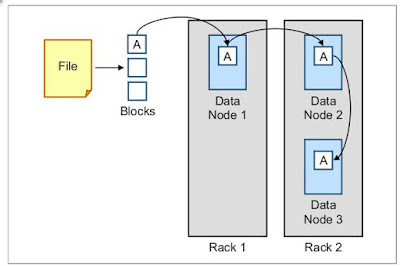Cloud-Based Big Data Solutions: Transforming Data Management and Analytics
Introduction
Have you noticed how businesses are increasingly adopting cloud-based solutions for managing their big data? According to a recent study, over 90% of companies are utilizing cloud services for data storage and analytics. The shift towards cloud-based big data solutions is revolutionizing the way organizations handle, analyze, and leverage their data. With the growing volume of data generated daily, traditional on-premise systems are struggling to keep up. In this article, we'll explore the rise of cloud-based big data solutions, their benefits, and practical tips for effective implementation.
Section 1: Background and Context
What are Cloud-Based Big Data Solutions?
Cloud-based big data solutions refer to the use of cloud computing technologies to store, process, and analyze large datasets. These solutions leverage the scalability, flexibility, and cost-efficiency of cloud platforms to manage big data. Major cloud providers like Amazon Web Services (AWS), Google Cloud Platform (GCP), and Microsoft Azure offer robust big data services, including data storage, processing, and analytics tools.
The Growing Importance of Big Data
Big data encompasses vast amounts of structured and unstructured data generated from various sources, such as social media, IoT devices, and online transactions. This data holds valuable insights that can drive business decisions, optimize operations, and enhance customer experiences. However, managing and analyzing such large datasets require advanced technologies, which is where cloud-based solutions come into play.
Section 2: Key Points
Benefits of Cloud-Based Big Data Solutions
- Scalability: One of the primary advantages of cloud-based solutions is their ability to scale. As data volume grows, cloud platforms can easily expand storage and processing capabilities without significant upfront investments.
- Cost-Efficiency: Cloud-based big data solutions eliminate the need for expensive on-premise infrastructure. Companies pay for what they use, optimizing costs and reducing capital expenditure.
- Flexibility: Cloud platforms offer a wide range of tools and services for data management and analytics. Businesses can choose the best-fit solutions tailored to their specific needs.
- Accessibility: Cloud-based solutions provide access to data from anywhere, enabling remote collaboration and real-time insights.
Challenges of Cloud-Based Big Data Solutions
- Security Concerns: Storing sensitive data in the cloud raises security and privacy issues. Companies must implement robust security measures to protect their data.
- Data Integration: Integrating cloud-based solutions with existing systems can be complex. Ensuring seamless data flow and compatibility is essential.
- Cost Management: While cloud solutions are cost-efficient, improper management can lead to unexpected expenses. Monitoring usage and optimizing resources is crucial.
Use Cases and Industry Applications
- Healthcare: Cloud-based big data solutions are used for analyzing patient data, improving diagnostics, and enhancing treatment plans.
- Retail: Retailers leverage cloud platforms to analyze customer behavior, optimize inventory, and personalize marketing strategies.
- Finance: Financial institutions use cloud-based solutions for risk management, fraud detection, and real-time trading analytics.
Section 3: Practical Tips and Examples
Implementing Cloud-Based Big Data Solutions
- Assess Your Needs: Determine the specific requirements of your data management and analytics processes. Choose a cloud provider that offers the necessary tools and services.
- Plan for Security: Implement strong security measures, including encryption, access controls, and regular audits, to protect sensitive data.
- Optimize Costs: Monitor cloud usage and optimize resources to avoid unexpected expenses. Utilize cost management tools provided by cloud platforms.
Real-World Examples
- Netflix: Uses AWS for streaming analytics, content delivery, and personalized recommendations to millions of users.
- Nike: Employs Google Cloud Platform for data-driven insights, enhancing product development and customer engagement.
Conclusion
The rise of cloud-based big data solutions has transformed the way organizations manage and analyze their data. With benefits like scalability, cost-efficiency, flexibility, and accessibility, cloud platforms offer powerful tools for leveraging big data. However, businesses must address challenges related to security, data integration, and cost management to maximize the potential of cloud-based solutions. By understanding the advantages and implementing practical tips, companies can harness the power of cloud-based big data solutions to drive innovation and achieve their goals. Embrace the future of data management and analytics with cloud-based solutions, and unlock the full potential of your big data.




Comments
Post a Comment